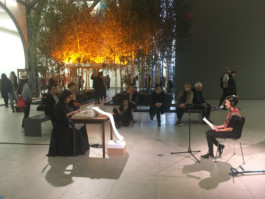
CuratorLab
Konstfack University of Arts, Crafts and Design
Curatorial course for professionals at Konstfack University of Arts, Crafts and Design in Stockholm.
CuratorLab is a one-year international curatorial course, established in 1999 as the oldest curatorial education course in Sweden and remains a platform open to everybody with curiosity to challenge and present new curatorial practices. We intend to built a group of participants with solid experience, a grounded interest and a sense of commitment in order to share a learning experience together. We meet four times per year for intensive week sessions in Stockholm, in autumn, winter, spring and early summer, including a trip, and additional monthly online meetings in-between the sessions.
Program director: Marti Manen
Tutors
CuratorLab Director
Marti Manen, CuratorLab Program Director since 2024. Manen has worked intensively with independent and institutional curatorial practice. He has curated exhibitions at the Museo de Historia Natural (Mexico City), Aara (Bangkok), Tabakalera (San Sebastian) Konsthall C (Stockholm), CA2M (Madrid), and Fabra i Coats (Barcelona). Marti Manen was the curator of the Spanish Pavilion at the 2015 Venice Biennale, and curated Momentum10 (Biennial in Moss, Norway, 2019). In the 1990s, he curated five years of exhibitions in his room located in a student flat in Barcelona. Since 2018 Marti Manen is Director of Index - The Swedish Contemporary Art Foundation in Stockholm. He has published books including "Salir de la exposición" ("Leaving the Exhibition") (Consonni), "Contarlo todo sin saber cómo" ("Telling everything not knowing how") (CA2M), and "When Lines Are Time" (Miró Foundation Barcelona).
Previous CuratorLab Directors
Joanna Warsza, CuratorLab Program Director, 2014 to 2024. An independent curator, editor, writer and educator. She has curated several Biennales and large scale projects such as Radical Playgrounds: From Competition to Collaboration at Gropius Bau in Berlin, the Polish pavilion at the 59th Venice Biennale with Malgorzata Mirga-Tas, the Georgian Pavilion at the 55th, the 7th Berlin Biennale, or co-curated the 3. and 4. Autostrada Biennale in Kosovo.
Under her directorship of CuratorLab (2014-2024), participants focused on the curatorial beyond the exhibition format, staging trials, being advocates, expressing the conviviality, editing books, exploring radical approaches to engagement and debating pertinent issues of our times. One of the leading questions was how to understand - paraphrasing Audre Lorde - our interdependence in relation to our own individual power and creativity? Thus every year participants worked on a common topic where everyone responded with their own sensibility. They were advocates for art defending projects at the Visible Temporary Parliament in Paris, staged the Operaist Trial with the artist Rossella Biscotti, co-edited a reader on love and revolution and Alexandra Kollontai, published two readers on asymmetries and pioneering curators in Sweden, composed the public program of the 4. Autostrada Biennale in Kosovo around the notion of Biennale of Resistance or realised projects across the Sápmi region. Our main guest lecturer and compagnion along those years was Maria Lind, along many peers and collegues at Konstfack. The learning, the conviviality, the inspiring coversations never stopped and they will continue.
Renée Padt, CuratorLab Program Director, 2008 to 2014. Born in the Netherlands and now based in Stockholm, Sweden, Renée Padt is a curator and producer in the fields of art, craft and design. With a background in museology and art history, she has produced numerous exhibitions and cultural events in museums and art institutions worldwide, including the Venice Biennale, Documenta11, The Museum of World Culture in Gothenburg, and the Bauhaus in Dessau.
Karina Ericsson Wärn, CuratorLab Program Director, 1999 to 2008. Lives and works in Stockholm and Paris. Vice-chancellor at Beckmans College of Design in Stockholm since 2018. Curator and writer within the field of fashion, photography and contemporary art. Co-founder and former director of Galleri Gauss and Index-The Swedish Contemporary Art Foundation.
Måns Wrange, founder and Program Director, 1999 to 2006. Artist, writer, curator and educator based in Stockholm. Since 2019 rector of the Oslo Academy of Fine Arts. From 2014 to 2017 he held a guest professorship at Stockholm University. From 2008 to 2014, Måns Wrange was rector of the Royal Institute of Art (Kungl. Konsthögskolan) in Stockholm, and from 1995 to 2008, he was first head of department and then professor at Konstfack – University College of Art, Crafts and Design in Stockholm.
Guest lecturers:
Abdellah Karroum, Abir Albukhari, Ana Teixeira Pinto, Anabelle Lacroix, Anastasia Shestak, Andjeas Ejiksson, Anna Tomaszewska, Andre Lepecki, Andrea Philips, Anna-Karin Wulgué, Anna Ramos, Annie Fletcher, Annika Eriksson, Annika Enqvist, Annika Larsson , Anthony Huberman, Azat Sargsyan, Barbara London, Beatrice von Bismarck, Behzad Khosravi, Benjamin Noys, Binna Choi, Bitsy Knox, Cara Tolmie, Carles Guerra, Carol Tulloch, Charlotte Bydler, Charles Esche, Chris Dercon, Chus Martínez, Diana Baldon, Doreen Mende, Edi Muka, Ekaterina Kalinina, Elena Tzotzi, Elin Lundgren, Emily Roysdon, Ewa Majewska, Eva Gonzalez-Sancho, Fredrik Liew, Fredrik Svensk, Gabi Ngobo, Gavin Wade, Goldin + Senneby, Hana Elbeblawy, Hana Halilaj, Harm Rensink, Helena Selder, Ida Lundén, Isabel Löfgren, Janna Graham, Jesper Nordahl, Joanna Sandell, Johanna Billing, Jonatan Habib Engqvist, Judith Wielander, Kim West, Lars Bang Larsen, Laurel Ptak, Lena Jonson, Lívia Páldi, Lisa Rosendahl, Luca Lo Pinto, Magdalena Malm, Marc Herbst, Maria Lantz, Maria Lind, Marina Vishmidt, Mark Fisher, Markus Degerman, Marta Kuzma, Martí Manen, Martin Fritz, Martin Schibli, Mats Sternstadt, Matteo Lucchetti, Mattin, Michele Masucci, Nataša Petrešin-Bachelez, Nathalie Gabrielsson, Nina Möntmann, Olaf Nielsen, Olav Westphalen, Olivia Plender, Pablo Lafuente, Patricia Reed, Paul O'Neill, Paul Purgas, Petra Bauer, Pierre Bal Blanc, Power Ekroth, Raimundas Malašauskas, Rasmus Nielsen, Rebecca Gordon Nesbit, Rick Lowe, Rossella Biscotti, Sara Rossling, Shahram Khosravi, Sinziana Ravini,Sofia Hernandez Chong Cuy, Sofia Victorino, Søren Grammel, Stealth.unlimited, Stefanie Hessler, Staffan Lundgren, Suhail Malik, Susanne Ewerlöf, Ulrika Flink, Tai Shani, Tone, Vasco Forconi, Warren Neidech, Xenia Benivolski, Zoran Eric.
Current year
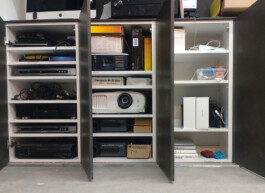
CuratorLab 2025/2026 proposes an observation of curatorial practice through a series of gatherings, meetings, workshop situations, project production, historical writing and experimentation. Participants of CuratorLab will develop their own projects in close dialogue with the rest of participants, meeting professionals and observing key examples of curatorial thinking.
Two strands of thought will be offered as a system to rethink curatorial practice: Platforms and Performativity. With Carmen Lael Hines, the idea of platform will be analysed critically to reconsider curatorial work and its form of production and presentation. In dialogue with Pontus Pettersson, CuratorLab participants will consider the idea of performativity and how to understand choreographic practices from a curatorial position.
The strands of thought around Platforms and Performativity will be accompanied by meetings with professionals, institutions and historical observations of curatorial practice.
The course will be directed by Marti Manen with the collaboration of guest lecturers Carmen Lael Hines and Pontus Pettersson.
CuratorLab is a one-year international advanced curatorial course at Konstfack University of Arts, Crafts and Design in Stockholm. We are exploring experimental approaches to the curatorial, contributing to the pertinent conversations of our times, practicing curating beyond exhibition making and applying horizontal learning.
For more than 25 years, CuratorLab has been a platform to rethink curatorial practice testing models and ways of doing. Experimental exhibitions, publications, seminars, advocacy and project development have been part of the outcomes produced during CuratorLab. The course understands flexibility and porosity as learning methodologies and defines dialogical situations for deeper conversations around criticality, societal aspects of artistic practice and the role of contemporary art today.
Participants:
2024-2025
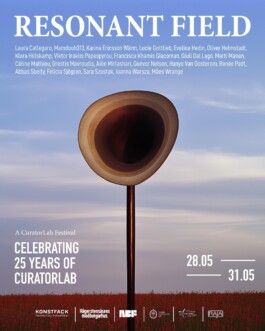
Resonant Field unfolds across Stockholm through a series of curatorial and artistic interventions around the concept of sound. Organised by the participants of CuratorLab at Konstfack, this year’s edition also marks the 25th anniversary of the programme. The festival explores resonance as a curatorial and artistic method, presenting sound expressions, performances, stories, and language-based works that reverberate across the city. Through diverse sites and voices, Resonant Field becomes a space for shared listening, storytelling, and attunement to the world around us.
SCHEDULE
WEDNESDAY 28 MAY
-Observing CuratorLab history. 25 years of curatorial experimentation
A multiple conversation and thoughts with CuratorLab directors from its 25 years of history: Måns Wrange, Renée Padt, Joanna Warsza and Marti Manen.
Time: 15:00 / Place: Konstfack, Mandelgren
-Curatorial text production and history writing
CuratorLab 2024/25 participants have been writing about some selected exhibitions. During this gathering (with some food and participation) these key exhibitions and the curatorial approaches in writing will be presented.
Time: 19:00 / Place: NKF
THURSDAY 29 MAY
-art for hire
Sound exhibition, curated by Oliver Helmstadt.
Time: 12:00 - 18:00 / Place: Butik Raja Sankt Eriksplan 13
FRIDAY 30 MAY
-art for hire
Sound exhibition, curated by Oliver Helmstadt
Time: 11:00 - 13:30 / Place: Butik Raja. Sankt Eriksplan 13
-Gaming the Archive: Replaying Robert Rauschenberg’s Open Score (1966)
Curatorial lecture/performance by Sara Szostak.
Time: 17:30 / Place: ABF Stockholm, Zätasalen
-True to Life - an echo
Screening and sound performance with Gunvor Nelson and Felicia Sjögren, Curated by Lucie Gottlieb.
Time: 19:00 / Place: ABF Stockholm, Zätasalen
-No One and Eleven Million: All hand-clapping
One day exhibition with Orestis Mavroudis, curated by Viktor Iraklis.
Time: 15:00-20:00 / Place: ABF Stockholm, Zätasalen entrance
-Many many groceries
With Céline Mathieu, curated by Klara Hülskamp.
Time: 17:30 -20:00 / Place: ABF Stockholm, in front of Zätasalen
SATURDAY 31 MAY
- art for hire
Sound exhibition, curated by Oliver Helmstadt
Time: 11:00 - 15:00 / Place: Butik Raja. Sankt Eriksplan 13
-Why do you turn the volume down?
Performance with Giuli Dal Lago, curated by Laura Callegaro
Time: 16:00 / Place: Hägerstensåsens Medborgarhus
-Unfolding Arrival
Triple performance & dinner with Francisca Khamis Giacoman, Mamdouh313, Ailin Mirlashari, curated by Abbas Sbeity and Evelina Hedin
Time: 17.30 / Place: Hägerstensåsens Medborgarhus
-Many many groceries
Céline Mathieu, Curated by Klara Hülskamp
Time: 16:30 – 20:30 / Place: Hägerstensåsens Medborgarhus
- No One and Eleven Million: Vision Of Chi
Sound intervention with Hanyo Van Oosterom a.k.a Son Of Chi,curated by Viktor Iraklis
Time: 13:00 - 16:00 / Place: Hägerstensåsens Medborgarhus
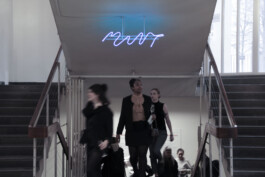
Photo: Mint Stockholm
CuratorLab on sound practices
For the 2024-2025 academic year, we invite you to join CuratorLab for collective research and work around curatorial practices embracing sound and temporalities. In collaboration with Mint Stockholm.
Mint operates in the basement of the Workers' Educational Association in Stockholm (ABF). During the 1960s it functioned as an important center for transdisciplinary culture in Sweden and internationally, hosting an art gallery, a jazz club, an experimental sound studio, a progressive cinema and more. Building on the legacy of the experimental sound history from this period, Mint invites CuratorLab participants to develop projects where visual art and sound art are linked and explored. Together with invited experts, we will during the course create a series of projects that will explore and produce ephemeral listening sessions, performances, publications and investigate the politics of listening.
Mint is a non-profit exhibition space situated in the Workers' Educational Association in central Stockholm, initiated in 2019 by curators Emily Fahlén and Asrin Haidari. Focusing on contemporary art and poetry, Mint is embracing experimental practices, cross-generational encounters and site-specific interventions. As the practice of a museum relates to – and is in dialogue with – its collection, Mint allows its program to be inspired and directed by the history of the building and its events, struggles, organizations and cultural expressions.
The course will be directed by the new CuratorLab Course Director Marti Manen and will be realized in collaboration with Mint (with Emily Fahlén and Alice Söderqvist as guest lecturers).
Participants:
2023-2024
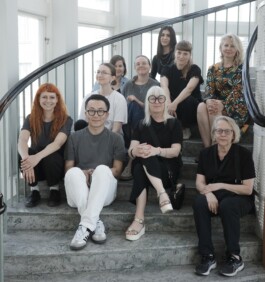
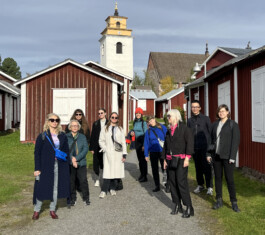
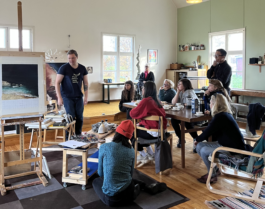
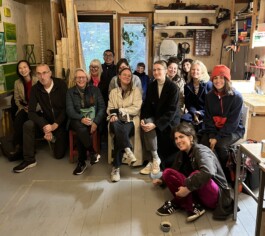
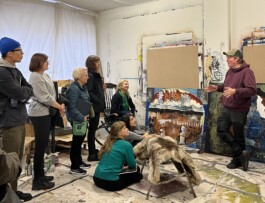
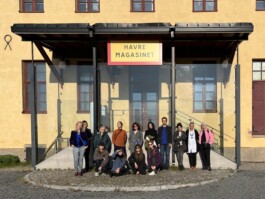
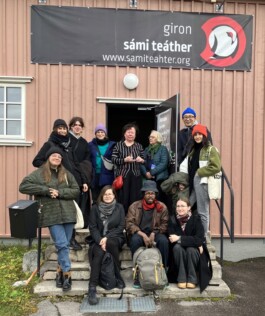
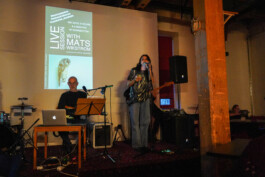
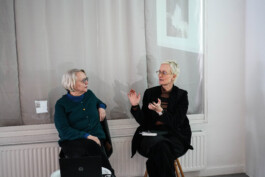
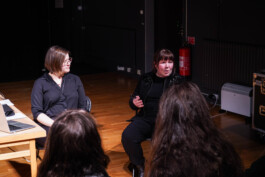
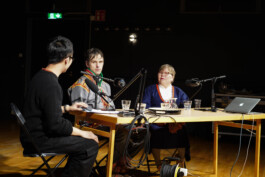
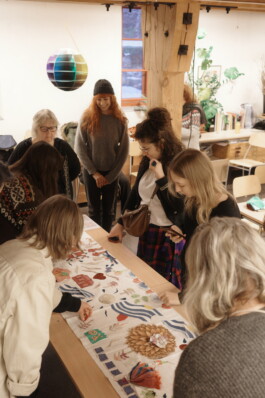
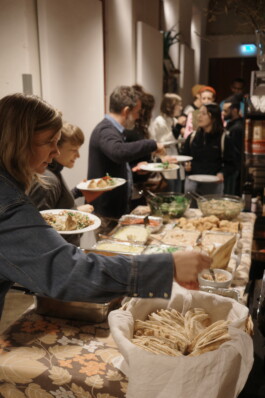
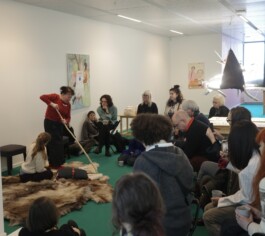
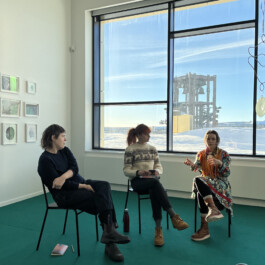
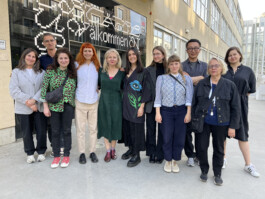
CuratorLab participants 2023/2024. Photo(1): Bitte Andersson
CuratorLab participants 2023/2024. Photo(1): Bitte Andersson
CuratorLab participants 2023/2024. Photo(1): Bitte Andersson
CuratorLab participants 2023/2024. Photo(1): Bitte Andersson
CuratorLab participants 2023/2024. Photo(1): Bitte Andersson
CuratorLab participants 2023/2024. Photo(1): Bitte Andersson
CuratorLab participants 2023/2024. Photo(1): Bitte Andersson
CuratorLab participants 2023/2024. Photo(1): Bitte Andersson
CuratorLab participants 2023/2024. Photo(1): Bitte Andersson
CuratorLab participants 2023/2024. Photo(1): Bitte Andersson
CuratorLab participants 2023/2024. Photo(1): Bitte Andersson
CuratorLab participants 2023/2024. Photo(1): Bitte Andersson
CuratorLab participants 2023/2024. Photo(1): Bitte Andersson
CuratorLab participants 2023/2024. Photo(1): Bitte Andersson
CuratorLab participants 2023/2024. Photo(1): Bitte Andersson
CuratorLab participants 2023/2024. Photo(1): Bitte Andersson
A year in which we worked in and with Sápmi region on the curatorial projects with and from Umeå to Kiruna.
During the 2023-2024 academic year, together with curators Joanna Warsza and Maria Lind we worked on collective research in and with the north of Sweden. The area making up the region of Norrland covers 60% of the country, and it is populated by about 10% of out of 11 million people. It is part of Sápmi, the territory inhabited by the Sámi spanning across Fennoscandia, between Northern and Eastern Europe. The area, which is rich in natural resources such as silver, iron ore and forests, was controlled, claimed and colonized by the Crown from the 14th century onwards, a form of exploitation that continues to this day. However, against many odds, indigenous Sámi traditional lifestyles, knowledge, craft and music have survived, and are developed and practiced across the north.
Today industrialization is expanding, with new mines, large windmill farms, and internet servers being established, while the climate change is palpable, causing problems such as new layers of thin ice preventing the reindeer from grazing. The north is a place where the politics of extraction meet the need to cultivate vernacular ways of being. What do these conditions mean for life in the region? What are the implications for the climate, the landscape, for the Sámi as well as for others living and working there? What can art and curating bring to the table, and how?
The course was realized in collaboration with Bildmuseet at Umeå University and in dialogue with the institution's long commitment to Sámi artists and the questions of the north. Among the discussion partners were artists Anders Sunna and Katarina Pirak Sikku, as well as Galleri Syster in Luleå, Havremagasinet in Boden and Kin Museum of Contemporary Art in Kiruna.
Under the working title "the North", a group of ten participants traveled to Umeå, Luleå, Jokkmokk, Råneå, Boden, Kiruna and other places to meet and work with artists and other cultural practitioners. One of many beautiful results of those unfinished conversations and on-site projects and journeys was to bring Anders Sunna, an alumnus of Konstfack and a prolific Sámi painter back to talk at the school for the first time since.
At the link below you can listen to podcasts recorded by participants with the artists:
Episode 1: Katarina Pirak Sikku and Fredrik Prost speak with Sixten Liu
Episode 2: 'Imagine Being Able To Speak All The World’s Languages Without Saying A Word", Anders Sunna in conversation with Sixten Liu, Ana Victoria Bruno and Kerstin Möller
Public program in collaboration with Kin Museum of Contemporary Art and Giron Sami Theatre, Kiruna
Public program at Konstfack University of Arts, Crafts and Design in Stockholm
2022-2023
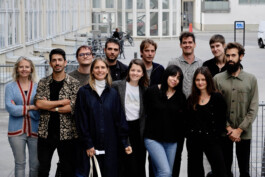
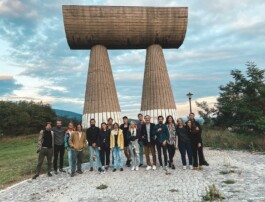
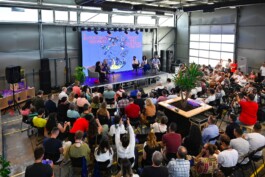
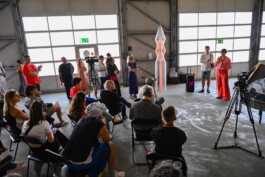
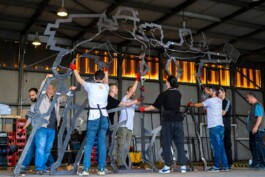
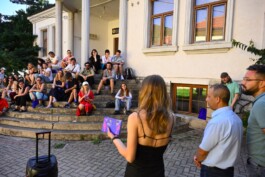
The co-curators of the 4th Autostrada Biennale’s public program. Photo(1): Bitte Andersson
The co-curators of the 4th Autostrada Biennale’s public program. Photo(1): Bitte Andersson
The co-curators of the 4th Autostrada Biennale’s public program. Photo(1): Bitte Andersson
The co-curators of the 4th Autostrada Biennale’s public program. Photo(1): Bitte Andersson
The co-curators of the 4th Autostrada Biennale’s public program. Photo(1): Bitte Andersson
The co-curators of the 4th Autostrada Biennale’s public program. Photo(1): Bitte Andersson
Biennales of Resistance: a collaboration with the 4th Autostrada Biennale in Kosovo
For the academic year 2022/2023, we invite you to form the team of researchers and assistant curators for the 4th Autostrada Biennale, curated by Övül Ö. Durmusoglu and Joanna Warsza. Autostrada Biennale was established by two artists and a pedagogue in 2014 in Kosovo. As the only contemporary art institution in Prizren, it functions on two speeds: one is a physical exhibition taking place in the public space every two years, the second is a long-term educational center in the former KFOR military camp where the exhibition preparation process is open to the public, making the production of the artworks a form of learning and critical thinking.
Among the three hundred biennials in the world, there are biennales and biennales. Those second ones ‒ such as, in our belief, the Autostrada Biennale ‒ are more valuable to look at and work with from a critical, curatorial perspective. These have been called Biennales of Resistance by the political scientist Oliver Marchart and many have originated in the Global South such as the early Havana Biennial 1978, the Gwangju Biennale after the democratic uprising in South Korea in 1980, the short-lived Johannesburg Biennale after the end of apartheid in 1994, or the Istanbul Biennale after the 1980 military intervention in Turkey. Some of their aims were to de-westernize the art canon, decenter cartographies, shake legitimized institutional art, or create counter-hegemonic models. Autostrada Biennale responds to some of these needs, from the position of the Western Balkans. Kosovo is among the very few countries in Europe where a visa is still needed to travel in the EU, it is a post-war political entity only partially recognized, a corner where different ethnicities and religions breathe side-by-side, and finally, it is a place where the language of contemporary art is needed as a form of resilience and recovery.
The participants are invited to join, shape and reflect on the process of biennale-making in Prizren, working on the conceptualization, contextualisation and production of the context-responsive works and the public program in close collaboration with the curators, artists, directors, education and production teams. The participants are also encouraged to propose their own public and/or education program around the opening of the biennale in June 2023, as well as share educational tools in collaboration with young curators working in Kosovo and the Western Balkan region and with the University of Prishtina and Academy of Fine Art.
2021-2022
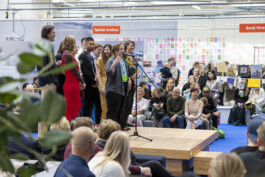
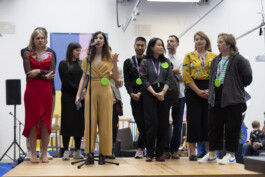
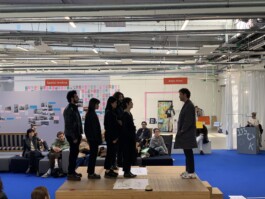
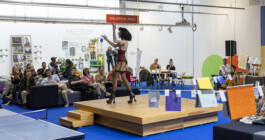
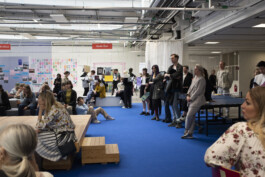
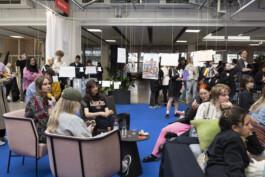
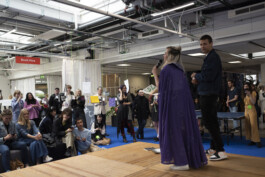
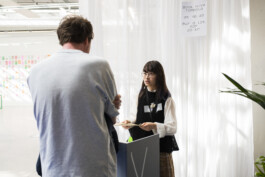
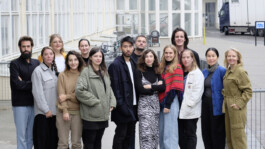
Master’s and Teachers Education Degree Exhibition May 2022, curated by CuratorLab. Photo: Gustav Karlsson Frost (1, 2, 4); Res (3, 5, 6, 7, 8)
Master’s and Teachers Education Degree Exhibition May 2022, curated by CuratorLab. Photo: Gustav Karlsson Frost (1, 2, 4); Res (3, 5, 6, 7, 8)
Master’s and Teachers Education Degree Exhibition May 2022, curated by CuratorLab. Photo: Gustav Karlsson Frost (1, 2, 4); Res (3, 5, 6, 7, 8)
Master’s and Teachers Education Degree Exhibition May 2022, curated by CuratorLab. Photo: Gustav Karlsson Frost (1, 2, 4); Res (3, 5, 6, 7, 8)
Master’s and Teachers Education Degree Exhibition May 2022, curated by CuratorLab. Photo: Gustav Karlsson Frost (1, 2, 4); Res (3, 5, 6, 7, 8)
Master’s and Teachers Education Degree Exhibition May 2022, curated by CuratorLab. Photo: Gustav Karlsson Frost (1, 2, 4); Res (3, 5, 6, 7, 8)
Master’s and Teachers Education Degree Exhibition May 2022, curated by CuratorLab. Photo: Gustav Karlsson Frost (1, 2, 4); Res (3, 5, 6, 7, 8)
Master’s and Teachers Education Degree Exhibition May 2022, curated by CuratorLab. Photo: Gustav Karlsson Frost (1, 2, 4); Res (3, 5, 6, 7, 8)
Master’s and Teachers Education Degree Exhibition May 2022, curated by CuratorLab. Photo: Gustav Karlsson Frost (1, 2, 4); Res (3, 5, 6, 7, 8)
Co-curating Konstfack MA Spring Exhibition 2022
For the academic year 2021/2022, CuratorLab joins the team of curators for one of the most anticipated art events in Stockholm: Konstfack's Spring Exhibition 2022, which includes Master's degree programs from the following departments: Fine Art; Craft! (Textile, Glass and Ceramics, Jewellery and Corpus); Spatial Design; Individual Study Plan in Design, Teacher Education in Visual Art and Sloyd, and Visual Communication. Through a mix of dialogues, studio visits, feedback, crit sessions, group work, field trips and seminars, we delve into the ideas and visions of over 85 graduates across these fields.
Konstfack's Spring Exhibition is one of the most important and widely attended art events of the Stockholm art community. It also produces a lot of hopes, aspirations and expectations — some of them impossible to fulfill. We intend to explore questions around the possible ways of presenting this diverse educational setting and opening up the process rather than only celebrating its final results. How can we combine the intimacy of learning and failing and the array of materials and techniques within a situated context of a given space-time? How to understand — paraphrasing Audre Lorde — our interdependence in relation to our own individual power and creativity? How to negotiate between students' desires for self-expression and the curatorial impulse to identify narratives? How to refrain from the reenactment of old hierarchies and think of a unique place of art schools in the ecosystem of art and beyond it? How to combine large-scale production with a setting that benefits all graduates? How to work professionally, efficiently but critically within the frameworks of an established institution?
2020-2021
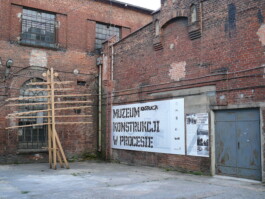
A series of public art exhibitions, Construction in process, Łódź, Poland, early 80s
Archeology of a Profession. The legacy of some less known ground-breaking curators.
CuratorLab embarks on a year-long project tracing the professional archaeology of some of the senior ground-breaking curators. We will dig into a number of instrumental exhibitions and other projects, which on the one hand introduced decolonial and other non-hegemonic approaches in Sweden, and on the other hand anti-monumental curating in the public realm in Europe and the US. The projects will lead us to practitioners who have made a mark on both art and curating of their time, and still remain less known. It will culminate with a book and an exhibition honoring their legacy in May 2021 in Stockholm.
Book led by Maria Lind. Some case studies in Sweden.
We will meet and interview curators and institutional directors such as Elisabet Haglund (Kulturhuset in Stockholm and Borås Konstmuseum) Gunilla Lundahl (the magazine Form and independent projects), Jan-Erik Lundström (Fotografiska museet and Bildmuseet in Umeå) and Carlos Capelán (independent projects). We will conduct archival research connected to their work.
Book led by Joanna Warsza. Working title: Early days of Public Art.
What is public and counter-public in public art? How have the notions of situated or embedded knowledge changed over the years? How does extractivist mind-set penetrate some of so-called participatory projects and how to dehegemonise art outside of the museum walls? We will study some worldwide examples of pioneer exhibitions of public art, interview the curators and artists, digitalize and problematize their legacies. We will work on legendary exhibitions and curatorial projects like Culture in Action curated by Mary Jane Jacob in 1993 in Chicago; Sonsbeek 93 curated by Valerie Smith; Endlichkeit der Freiheit, an exhibition started by Heiner Müller and Rebecca Horn on both sides of Berlin wall and realized after it felt down; Construction in Process, an artist-initiated site-specific exhibition in Łódz in the early 80s, and the Skulptur Projekte Münster, among others.
The research includes live presentations/interviews with forerunning curators, research trips, meetings, creative writing workshops, archival work and the final presentation in May.
___
An Archaeology of a Profession. A Series of Portraits of Exhibitions and Curators
CuratorLab 2020/2021 Final Online Programme, 26-27 May 2021
Presented by: Anna Mikaela Ekstrand, Giulia Floris, Edy Fung, Julius Lehmann, Marc Navarro, Simina Neagu, Hanna Nordell, Tomek Pawłowski-Jarmołajew, Marja Rautaharju, Erik Sandberg
26 May, 18:00-19:30 | Assuming Asymmetries. Conversations on Curating Public Art Projects of the 1980s and 1990s. Moderated by Joanna Warsza
27 May, 18:00-19:30 | Archeology of a Profession in Sweden. Curating Beyond the Mainstream with Carlos Capelán, Elisabet Haglund, Gunilla Lundahl, and Jan-Erik Lundström. Moderated by Maria Lind
The conversations will be live-streamed on CuratorLab Facebook page
More information and full program here
2020–2019
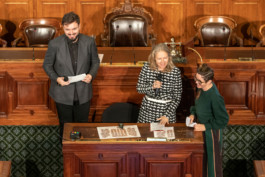
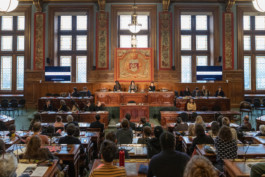
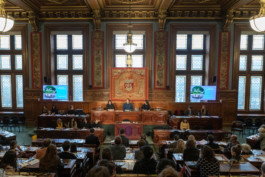
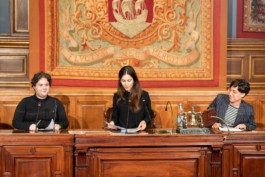
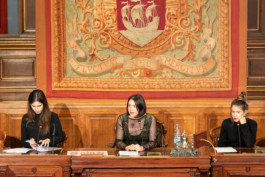
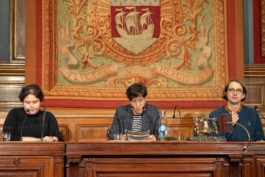
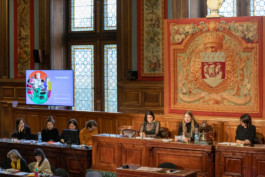
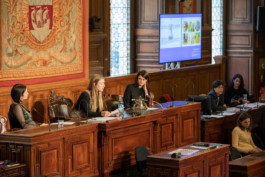
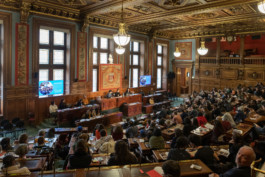
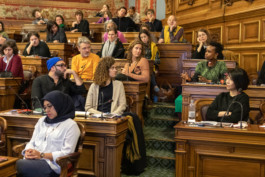
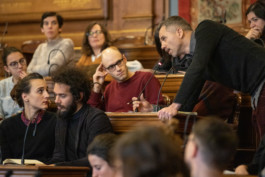
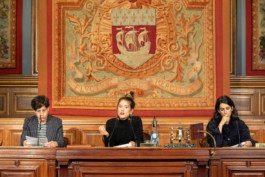
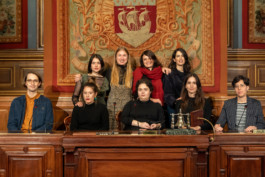
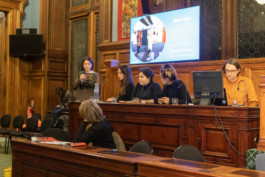
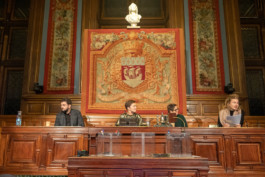
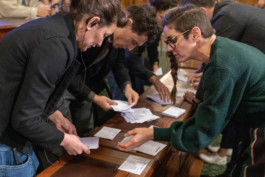
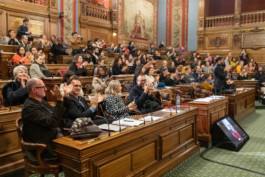
2019 Visible Temporary Parliament, Hôtel de Ville, Paris, photo by Benoit Laurent
2019 Visible Temporary Parliament, Hôtel de Ville, Paris, photo by Benoit Laurent
2019 Visible Temporary Parliament, Hôtel de Ville, Paris, photo by Benoit Laurent
2019 Visible Temporary Parliament, Hôtel de Ville, Paris, photo by Benoit Laurent
2019 Visible Temporary Parliament, Hôtel de Ville, Paris, photo by Benoit Laurent
2019 Visible Temporary Parliament, Hôtel de Ville, Paris, photo by Benoit Laurent
2019 Visible Temporary Parliament, Hôtel de Ville, Paris, photo by Benoit Laurent
2019 Visible Temporary Parliament, Hôtel de Ville, Paris, photo by Benoit Laurent
2019 Visible Temporary Parliament, Hôtel de Ville, Paris, photo by Benoit Laurent
2019 Visible Temporary Parliament, Hôtel de Ville, Paris, photo by Benoit Laurent
2019 Visible Temporary Parliament, Hôtel de Ville, Paris, photo by Benoit Laurent
2019 Visible Temporary Parliament, Hôtel de Ville, Paris, photo by Benoit Laurent
2019 Visible Temporary Parliament, Hôtel de Ville, Paris, photo by Benoit Laurent
2019 Visible Temporary Parliament, Hôtel de Ville, Paris, photo by Benoit Laurent
2019 Visible Temporary Parliament, Hôtel de Ville, Paris, photo by Benoit Laurent
2019 Visible Temporary Parliament, Hôtel de Ville, Paris, photo by Benoit Laurent
2019 Visible Temporary Parliament, Hôtel de Ville, Paris, photo by Benoit Laurent
Socially Engaged Curating in Post-Democratic Times.
In Fall 2019 CuratorLab participants acted as advocates for socially engaged practices shortlisted for the 2019 Visible Award. We tested advocacy as a form of care and responsibility defending artistic projects of Richard Bell, Cooking Sections, Luke Ching, Forensic Architecture, Daniel Godínez-Nivón, Trampoline House, Emily Jacir, Marisa Morán Jahn, Otobong Nkanga, Jasmeen Patheja. This experience made us raise the question of how can art institutions and practices be reformatted beyond display towards agency and engagement?
Over the course of the Covid-19 crisis, our frenzied world has morphed into a global stagnation. The sweet fruits of connectivity, cheap travel, and breakneck production and consumption have been put on hold overnight. In this turbulent time, we ask ourselves: what is indispensable for Translocal solidarity and collective action? Which materials, ways of doing, and values can be prioritized over national or supranational apparatuses, and which strategies of curation, activation, and conservation can we craft as artists and curators?
CuratorLab final on-line public programme: Notes on Curating Socially Engaged Art
Together with the curators of the Visible Project (Matteo Lucchetti and Judith Wielander) and the scholar Andrea Phillips, we look back and from there forwards at the advocacy as curatorial practice and at ways of advancing the discourse around curating socially engaged art.
Schedule:
From an Award to a Long-Term Support Structure?
Live conversation Matteo Lucchetti and Judith Wielander (Visible Project) with CuratorLab, Wednesday, 03 June - watch it online
Democracy and Dramaturgy: Modern Justice and Socially Engaged Artistic Practices
Andrea Phillips, part of Konstfack common seminar in rethinking research practices in Art, Technology and Design, Thursday, 04 June - watch it online
In collaboration with Visible Project (Cittadellarte-Fondazione Pistoletto/Fondazione Zegna), Public Art Agency Sweden, and Italian Cultural Institute in Stockholm.
Read more about the online program and the contents of the two conversations here
Propositions on Translocal Solidarity (Working Title)
Expanding on the relationships, experiences and ideas we developed during the Visible Temporary Parliament in 2019, we propose translocal solidarity as a way of seeing that advances the discourse around socially engaged art. Mobilised at a time of turbulence and change, translocal solidarity is a way to embody affect and commitment in transversal ways: moving away from nationality or ethnicity as benchmarks of belonging, and towards participation and community membership as guiding principles. Propositions on Translocal Solidarity is divided into three chapters: letters, interdisciplinary conversations, and scores, which together form a protocol for curating, archiving and sustaining socially engaged practices. It also includes a foreword and annotations, which link the history of curating socially engaged art with the propositions of this publication and make connections between the artistic practices. Through mobilizing slow reflection, reciprocity, and participation, the publication unpacks key questions specific to the curatorial field and its capacity to create support structures that can think beyond extraction and move towards long-term engagement. We understand this book as an accessible medium through which to build solidarity from art outwards, turning our attention to urgent issues of our time, making alliances and disseminating artistic practices, discourse and strategies across boundaries that bodies cannot otherwise cross.
With contributions by Richard Bell and Gary Folley, Cooking Sections and Zoey Todd, Luke Ching, Forensic Architecture, Daniel Godínez-Nivón, Morten Goll, Tone Olaf (Trampoline House) and Shahram Khosravi, Emily Jacir, Marisa Morán Jahn and Natalicia Tracy, Otobong Nkanga, Jasmeen Patheja, Matteo Lucchetti and Judith Wielander, Andrea Phillips, and CuratorLab 2019 participants.
2019–2018
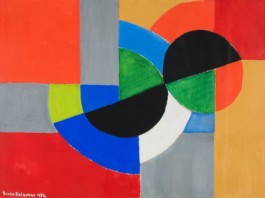
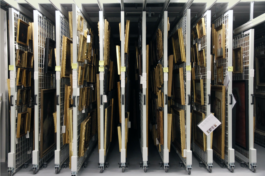
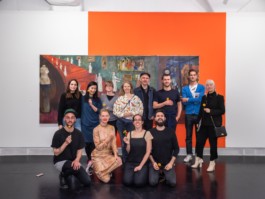
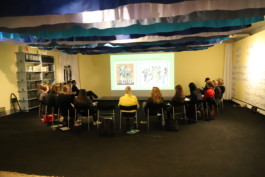
Sonia Delaunay, Rythme couleur, Migration: Traces in an Art Collection, Tensta konsthall
Malmö Konstmuseum storage
Group picture with Joanna Warsza, Maria Lind and Jonatan Habib Engqvist, Tensta konsthall, photo by Jean-Baptiste Béranger
How to Build a Public Sculpture, project presentation by John Heffernan, Tensta konsthall
Throughout the academic year, 2018-2019, CuratorLab participants worked alongside the curators Maria Lind and Cecilia Widenheim developing the mediation and public programme for the exhibition, Migration: Traces in an Art Collection, shown at Tensta konsthall and Malmö Konstmuseum in spring and autumn 2019. The starting point of the research was a question of how to work curatorially with public art collections by responding to notions of the public, publicness, the commons, the counter-public, the private, the shared, and the owned. Every participant was engaged in conceptual and hands-on research on the third biggest collection of ‘Nordic’ art in Sweden, from visiting its storage, having a conversation with the conservators and technicians, to develop their own projects. The research began by considering an event in 1945, when the staff of Southern Sweden’s largest museum, Malmö Museer, transformed the institution into a refugee center for those who had survived concentration camps in Germany and had come to Sweden on so-called ‘white buses’. From there, the participants outlined research topics and readings, asking what the role of the curator is in actualising and problematising collections, while also developing the exhibition’s programme, which considered exile, migration, displacement, and art travels in the globalised world.
2018–2017
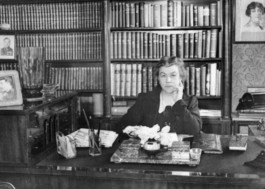
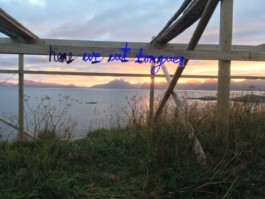
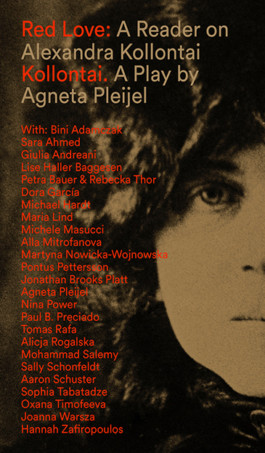
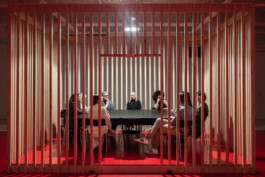
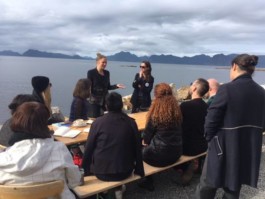
Aleksandra Kollontai
Research trip, photo by Joanna Warsza
Red Love Reader
Dora Garcia, Red Love, exhibition view, Tensta konsthall
Research trip, photo by Joanna Warsza
CuratorLab 2018-2017 participants together with writer Michele Masucci, collectively revisited the ideas of a Russian revolutionary and feminist, Aleksandra Kollontai, exploring topics such as sexual politics, free love, and motherhood. Kollantai was a prominent Russian revolutionary, a commissar of Social Welfare after the October revolution in 1917, and a long-term Soviet ambassador to Sweden. As a cofounder of the Zhenotdel, the ‘Women's Department’ in the communist party, she introduced abortion rights, secularized marriage, and provided paid maternity leave. Kollontai considered ‘comradely love’ to be an important political force and foundational to shaping social bonds beyond the limitations of property relations.
As a result our research we published a reader on the subject, titled Red Love, stemming from their year-long collaboration with Tensta konsthall, leading to Dora García's exhibition, Red Love. We also developed a related public programme to the show. A number of artists and thinkers revisited Kollontai's ideas throughout the book, on the politics of love and their relation to current political, social, and feminist struggles. The publication also includes the biographical play, Kollontai, written in 1977 by distinguished Swedish writer, Agneta Pleijel.
Red Love: A Reader on Alexandra Kollontai Kollontai. A Play by Agneta Pleijel
2017–2016
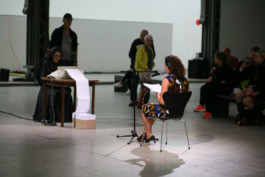
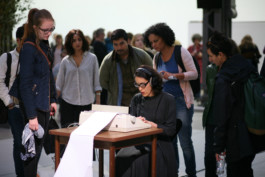
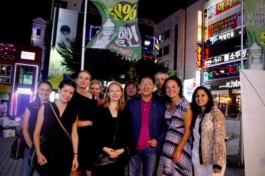
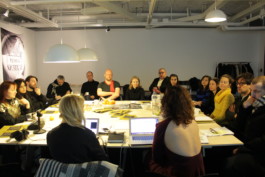
CuratorLab presents The Trial - II Processo, 2010-2017, Rossella Biscotti at Hamburger Bahnhof, Berlin, Germany 15&16 Sept 2017, photo by Maeshelle West Davies
CuratorLab presents The Trial - II Processo, 2010-2017, Rossella Biscotti at Hamburger Bahnhof, Berlin, Germany 15&16 Sept 2017, photo by Maeshelle West Davies
Curatorlab with the president of Gwangju Biennale Founadation, photo by Saima Usman
Group session, Tensta konsthall
Throughout the academic year 2016/2017 we have been working together with curator Maria Lind and writer Michele Mascucci on re-staging The Trial / Il Processo (2010/2017), a performative piece by Italian artist Rossella Biscotti, based on the original courtroom recordings from the 1982–84 trial of members of Autonomia Operaia in Rome. CuratorLab organised related research, reading groups, and meetings, prepared the transcripts and finally enacted The Trial at Tensta konsthall in Stockholm first as an open rehearsal, and then as a performance at the Hamburger Banhof in Berlin.
2016–2015
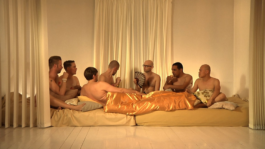
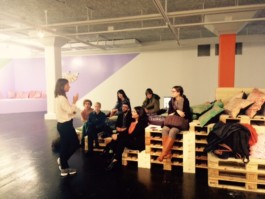
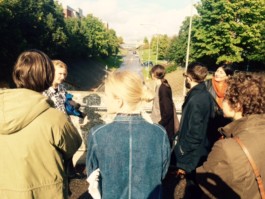
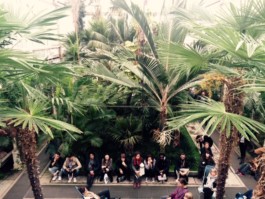
Iaspis Open House Spring 2016
Group at Tensta konsthall
Visiting Tensta neighbourhood
Research trip
Iaspis Open House Spring 2016 curated by CuratorLab
This edition of the Open House took on the concept of openness, hospitality, transparency and vulnerability, making access not only to the artists’ studios, but the institution as such and bringing the new public in-house. In a series of day and night events Open House presented the work in progress of Iaspis artists in residence program, as well as hosted the performative interventions of the Stockholm emerging scene, with its collectives contributing with food, self-made publication on demand, and a music repertoire. The main idea was to refer to the Swedish tradition of so-called Open House, when people organize a party open to everybody, an exhibition of their domicile, bringing the world into their life, and their life to the world.
When the Iaspis programme opens the doors of its studio residencies for a day, it is an invitation to take part in the on-going artistic processes. The Iaspis studio programmme’s focus is ‘research based’; a place of investigative activity that offers time off from the production line of making. The grant holders can spend their time at the residency to reflect, explore and enter into unconditional processes without the need for results. They initiate new projects in local partnerships or work on on-going projects.
The studio and the context created by the Iaspis programmme is in itself a platform for informal and formal meetings with Swedish and international artists, curators, writers and with professional audiences. The programme’s residence activities are therefore about process itself, with the aim to add to a greater internationalization of the applied and visual art scene in Sweden.
Iaspis grant holders March 2016
Azadeh Fatehrad, Tehran/London; Ayesha Sultana, Dhaka; Benny Nemerofsky Ramsay, Berlin/Montreal; Cecilia Hultman Sundsvall/Stockholm; Isak Sundström, Stockholm; Jenny Lindblom, Eskilstuna/Amsterdam; Mafune Gonjo, Strängnäs; Ruangrupa Arts Laboratory division (ArtLab), Jakarta; Vladimir Nikolić, Belgrade; Maria Nilsson Waller, Göteborg
The International Dance Programme, KID
Maria Nilsson Waller, Göteborg
Carin Kallenberg
Maryam Omrani
Sookyoung Huh
2015–2014
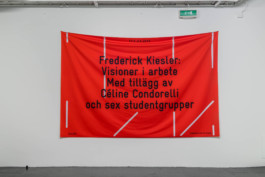
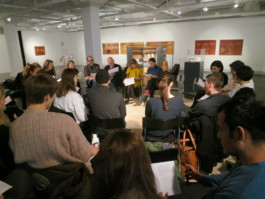
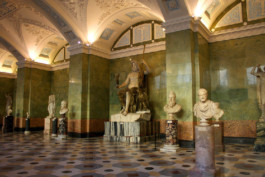
Frederick Kiesler: Visions at Work at Tensta konsthall, photo by Jean-Baptiste Béranger
Frederick Kiesler: Visions at Work Annotated by Céline Condorelli at Tensta konsthall
Research trip, Winter Palace, Sankt Petersburg
Frederick Kiesler: Visions at Work Annotated by Céline Condorelli and Six Student Groups including CuratorLab at Tensta konsthall
In winter 2015 Tensta konsthall showed the first exhibition in Sweden of Frederick Kiesler’s genuinely transdisciplinary work. Kiesler (1890–1965) was an architect, artist, scenographer, pedagogue, theorist and - not least - a groundbreaking exhibition designer. CuratorLab participants developed own public program of the show spanning from an exhibition in the shop windows in the shopping mall nearby, via reading groups on friednship to the selection of the reading material at the library.
The exhibition featured models and documentations of Kiesler’s designs for exhibitions, buildings, interiors, shop-windows, etc. from various periods. The exhibition also included prototypes, including those of his Mobile Home Library and the mass-produced so-called correalist furniture, among others. The focus was on Kiesler’s interest in the intersection between art and life and how this manifests in his works. The artist Céline Condorelli, who has a long-time interest in exhibition design and modes of presentation, contributed to the spatial design of the project.
Student groups from KTH Tensta, KTH School of Architecture, Mejan Arc at the Royal Institute of Art, Interior Architecture & Furniture Design and CuratorLab at Konstfack, and a fifth grade at Askebyskolan in Rinkeby were all involved with the exhibition.
Kim Mcaleese
Patrik Haggren
Samuel Perry
2014–2013
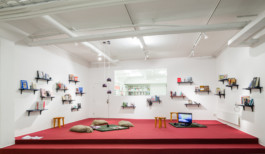
Grand Domestic Revolution, common project, Tensta konsthall
Alba Colomo
Lisanne Fransen
Michele Elefante Salvatore
Valentina Carollo
2013–2012
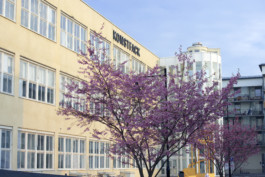
Benjamin Fallon
Goran Hassanpour
Haizea Barcenilla Garcia
João Laia
Maria Andueza Olmedo
Rosa Lleo Ortin
Ziga Testen
2012–2011
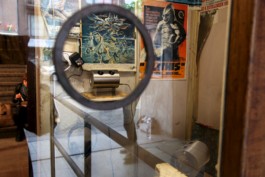
VIP Opening, June Zimmerfrei Cinema, courtesy of Michela Sacchetto
Cinthya Oliveira Cardosa Lana
Jessica Carden
Tiffany Boyle
Vera Mlechevska
2011–2010
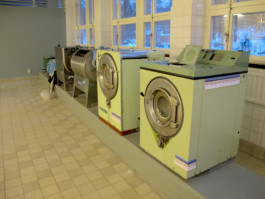
Laercio Redondo, Time Changes Everything Around, common project - apexart show Washed Out, Konsthall C
Carolina Rito
Milena Placentile
Misbah Deeb
Valerio Del Baglivo
2010–2009
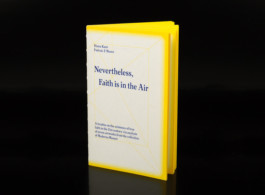
Padraic Moore, Nevertheless
Alexa Griffith Winton
Diana Kaur
Marina Noronha
Michael Dominic Capio
Tina Hansson
2009–2008
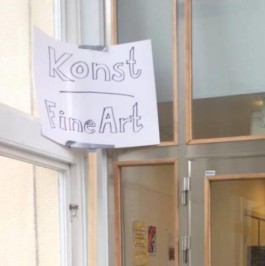
2008–2007
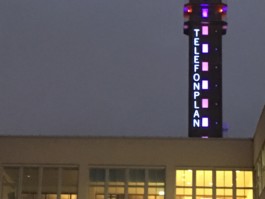
Maia Niki Gianakos
2007–2006
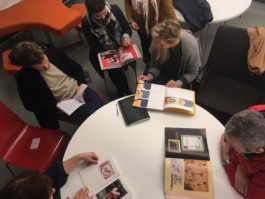
Adina Popescu
Agnieszka Kurant
Caroline Elgh
Michelle Cotton
Sarah Belden
2006–2005
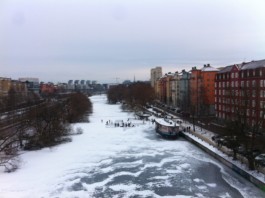
Anna Johansson
Anna Lundström
Caroline Elgh
Ellen von Zweigbergk
Giovanni Naves
Hitomi Hasegawa
Johan Lundh
Krist Gruijthuijsen
Mia Zeeck
Maria Andersson
2005–2004
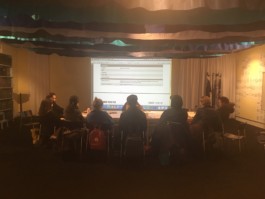
Ane Mette Hol
Cecilia Germain
Hanne Mugaas Joakimsen
Magnus Carlsson
Maria Lagergren
Rebecka Wigh
Thomas Watkiss
Yuvinka Medina
2004–2002
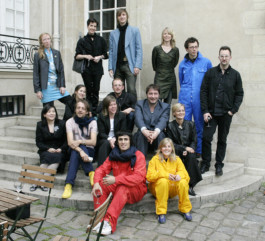
Balancing act, artists and curators
Balancing Acts, took place at the Centre Culturel Suédois (CCS), Paris in 2004 and included the artists Gunilla Klingberg, Felix Gmelin, Lars Siltberg, Johan Thurfjel, Amanda Cadell, Luca Frei and Kajsa Dahlberg.
2002–2000
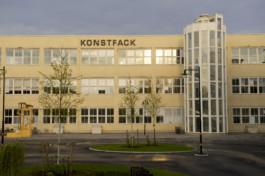
2000–1999
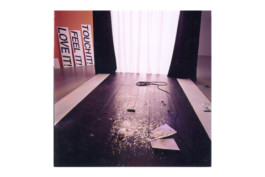
The first ever class to graduate from CuratorLab at Konstfack showed their exhibition-projects under one and the same roof at Färgfabriken. The exhibition was called, Lost in Space and displayed the works of seventeen artists from different parts of Sweden and from Norway. The title, Lost in Space, does not refer to outer space as much as to the question of accessibility of space here on Earth.
The title also alluded to the current situation for young contemporary arts practitioners, namely, the lack of spaces to exhibit and to reside in. While Lost in Spacewas one exhibition, it had five different components, since five curators made selections of artworks and artists with regard to their own ideas and projects. A catalogue produced for the show presented the works and curatorial ideas behind the exhibition.
Publications
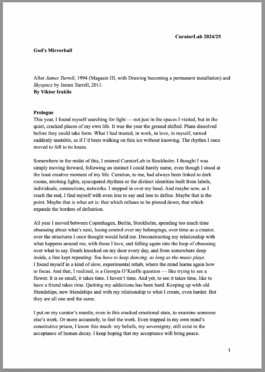
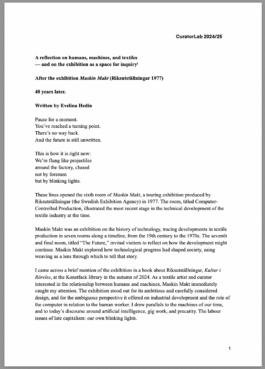
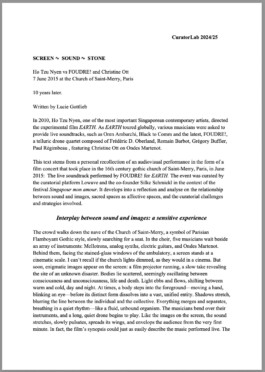
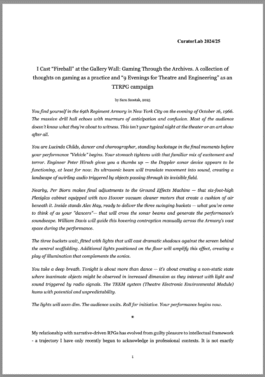
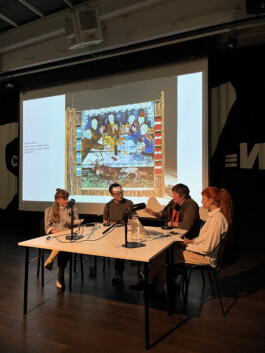

How to Stage Urban Struggles by Alba Folgado
Red Love: A Reader on Alexandra Kollontai
Kollontai. A Play by Agneta Pleijel
If I had - Om jag hade - Si yo tuviera by Jari Malta
Vår Tid (our time) by Jeongwon Chae
Handout: souvenir from Tea Party with Maja Berezowska by Kasia Sobczak
Museum of Care by Lotte Løvholm
Russian revolution Revisited, A project on archive material and contemporary practices by Domna Gounari
Everything is fine, or the continuous search for a utopia by Sofia Mavroudis
Ner/slag – Upp/brott – Sönder/fall by Jacob Hurting
Washed Out curated by Corina Oprea, Isabel Löfgren, Judith Souriau, Milena Placentile, and Valerio Del Baglivo
Apply
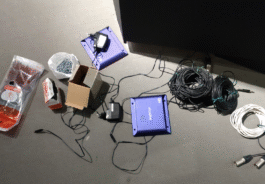
CuratorLab call for applications 2026/27
CuratorLab 2026/27 proposes an exploration of curatorial, institutional, and para-institutional practices through a series of gatherings, meetings, workshops, project development, historical research, and experimentation. Participants will develop their own curatorial projects in close dialogue with each other, engage with professionals, and study key examples of curatorial thinking.
CuratorLab 2026/27 situates curatorial work within the broader framework of institutional thinking—understood here as a way to interpret and engage with reality, rooted in criticality and a desire to propose new approaches for reshaping our contexts. Whether working inside or outside of formal institutions, curators must consider the structural conditions that influence exhibition-making and other modes of producing and presenting art.
This year’s edition will serve as a platform for creatively reimagining institutions, proposing new ways of working from a curatorial perspective in close collaboration with artistic practices and their modes of distribution.
The thematic focus on “expanding the institutional” will be accompanied by engagements with professionals, institutional partners, and historical case studies of curatorial practice.
The course will be led by Marti Manen, with guest lecturer Anna Manubens.
CuratorLab is a one-year international advanced curatorial course at Konstfack University of Arts, Crafts and Design in Stockholm. We explore experimental approaches to curating, contribute to pressing contemporary conversations, practice curating beyond exhibition-making, and emphasize horizontal learning.
For over 25 years, CuratorLab has served as a platform for rethinking curatorial practice—testing models and methods through experimental exhibitions, publications, seminars, advocacy, and project development. The course embraces flexibility and porosity as learning methodologies, fostering dialogical situations that enable deep discussions on critical thinking, the societal dimensions of artistic practice, and the role of contemporary art today.
How to apply
More information soon
Contact
Konstfack
LM Ericssons väg 14
126 26 Stockholm
Sweden

Scroll to top
designed by
Studio Pyda
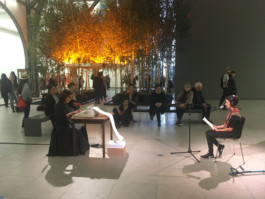
Konstfack University of
Arts, Crafts and Design
CuratorLab
Curatorial course for professionals at Konstfack University of Arts, Crafts and Design in Stockholm.
CuratorLab is a one-year international curatorial course, established in 1999 as the oldest curatorial education course in Sweden and remains a platform open to everybody with curiosity to challenge and present new curatorial practices. We intend to built a group of participants with solid experience, a grounded interest and a sense of commitment in order to share a learning experience together. We meet four times per year for intensive week sessions in Stockholm, in autumn, winter, spring and early summer, including a trip, and additional monthly online meetings in-between the sessions.
Program director: Marti Manen
Tutors
CuratorLab Director
Marti Manen, CuratorLab Program Director since 2024. Manen has worked intensively with independent and institutional curatorial practice. He has curated exhibitions at the Museo de Historia Natural (Mexico City), Aara (Bangkok), Tabakalera (San Sebastian) Konsthall C (Stockholm), CA2M (Madrid), and Fabra i Coats (Barcelona). Marti Manen was the curator of the Spanish Pavilion at the 2015 Venice Biennale, and curated Momentum10 (Biennial in Moss, Norway, 2019). In the 1990s, he curated five years of exhibitions in his room located in a student flat in Barcelona. Since 2018 Marti Manen is Director of Index - The Swedish Contemporary Art Foundation in Stockholm. He has published books including "Salir de la exposición" ("Leaving the Exhibition") (Consonni), "Contarlo todo sin saber cómo" ("Telling everything not knowing how") (CA2M), and "When Lines Are Time" (Miró Foundation Barcelona).
Previous CuratorLab Directors
Joanna Warsza, CuratorLab Program Director, 2014 to 2024. An independent curator, editor, writer and educator. She has curated several Biennales and large scale projects such as Radical Playgrounds: From Competition to Collaboration at Gropius Bau in Berlin, the Polish pavilion at the 59th Venice Biennale with Malgorzata Mirga-Tas, the Georgian Pavilion at the 55th, the 7th Berlin Biennale, or co-curated the 3. and 4. Autostrada Biennale in Kosovo.
Under her directorship of CuratorLab (2014-2024), participants focused on the curatorial beyond the exhibition format, staging trials, being advocates, expressing the conviviality, editing books, exploring radical approaches to engagement and debating pertinent issues of our times. One of the leading questions was how to understand - paraphrasing Audre Lorde - our interdependence in relation to our own individual power and creativity? Thus every year participants worked on a common topic where everyone responded with their own sensibility. They were advocates for art defending projects at the Visible Temporary Parliament in Paris, staged the Operaist Trial with the artist Rossella Biscotti, co-edited a reader on love and revolution and Alexandra Kollontai, published two readers on asymmetries and pioneering curators in Sweden, composed the public program of the 4. Autostrada Biennale in Kosovo around the notion of Biennale of Resistance or realised projects across the Sápmi region. Our main guest lecturer and compagnion along those years was Maria Lind, along many peers and collegues at Konstfack. The learning, the conviviality, the inspiring coversations never stopped and they will continue.
Renée Padt, CuratorLab Program Director, 2008 to 2014. Born in the Netherlands and now based in Stockholm, Sweden, Renée Padt is a curator and producer in the fields of art, craft and design. With a background in museology and art history, she has produced numerous exhibitions and cultural events in museums and art institutions worldwide, including the Venice Biennale, Documenta11, The Museum of World Culture in Gothenburg, and the Bauhaus in Dessau.
Karina Ericsson Wärn, CuratorLab Program Director, 1999 to 2008. Lives and works in Stockholm and Paris. Vice-chancellor at Beckmans College of Design in Stockholm since 2018. Curator and writer within the field of fashion, photography and contemporary art. Co-founder and former director of Galleri Gauss and Index-The Swedish Contemporary Art Foundation.
Måns Wrange, founder and Program Director, 1999 to 2006. Artist, writer, curator and educator based in Stockholm. Since 2019 rector of the Oslo Academy of Fine Arts. From 2014 to 2017 he held a guest professorship at Stockholm University. From 2008 to 2014, Måns Wrange was rector of the Royal Institute of Art (Kungl. Konsthögskolan) in Stockholm, and from 1995 to 2008, he was first head of department and then professor at Konstfack – University College of Art, Crafts and Design in Stockholm.
Guest lecturers:
Abdellah Karroum, Abir Albukhari, Ana Teixeira Pinto, Anabelle Lacroix, Anastasia Shestak, Andjeas Ejiksson, Anna Tomaszewska, Andre Lepecki, Andrea Philips, Anna-Karin Wulgué, Anna Ramos, Annie Fletcher, Annika Eriksson, Annika Enqvist, Annika Larsson , Anthony Huberman, Azat Sargsyan, Barbara London, Beatrice von Bismarck, Behzad Khosravi, Benjamin Noys, Binna Choi, Bitsy Knox, Cara Tolmie, Carles Guerra, Carol Tulloch, Charlotte Bydler, Charles Esche, Chris Dercon, Chus Martínez, Diana Baldon, Doreen Mende, Edi Muka, Ekaterina Kalinina, Elena Tzotzi, Elin Lundgren, Emily Roysdon, Ewa Majewska, Eva Gonzalez-Sancho, Fredrik Liew, Fredrik Svensk, Gabi Ngobo, Gavin Wade, Goldin + Senneby, Hana Elbeblawy, Hana Halilaj, Harm Rensink, Helena Selder, Ida Lundén, Isabel Löfgren, Janna Graham, Jesper Nordahl, Joanna Sandell, Johanna Billing, Jonatan Habib Engqvist, Judith Wielander, Kim West, Lars Bang Larsen, Laurel Ptak, Lena Jonson, Lívia Páldi, Lisa Rosendahl, Luca Lo Pinto, Magdalena Malm, Marc Herbst, Maria Lantz, Maria Lind, Marina Vishmidt, Mark Fisher, Markus Degerman, Marta Kuzma, Martí Manen, Martin Fritz, Martin Schibli, Mats Sternstadt, Matteo Lucchetti, Mattin, Michele Masucci, Nataša Petrešin-Bachelez, Nathalie Gabrielsson, Nina Möntmann, Olaf Nielsen, Olav Westphalen, Olivia Plender, Pablo Lafuente, Patricia Reed, Paul O'Neill, Paul Purgas, Petra Bauer, Pierre Bal Blanc, Power Ekroth, Raimundas Malašauskas, Rasmus Nielsen, Rebecca Gordon Nesbit, Rick Lowe, Rossella Biscotti, Sara Rossling, Shahram Khosravi, Sinziana Ravini,Sofia Hernandez Chong Cuy, Sofia Victorino, Søren Grammel, Stealth.unlimited, Stefanie Hessler, Staffan Lundgren, Suhail Malik, Susanne Ewerlöf, Ulrika Flink, Tai Shani, Tone, Vasco Forconi, Warren Neidech, Xenia Benivolski, Zoran Eric.
Current year

CuratorLab 2025/2026 proposes an observation of curatorial practice through a series of gatherings, meetings, workshop situations, project production, historical writing and experimentation. Participants of CuratorLab will develop their own projects in close dialogue with the rest of participants, meeting professionals and observing key examples of curatorial thinking.
Two strands of thought will be offered as a system to rethink curatorial practice: Platforms and Performativity. With Carmen Lael Hines, the idea of platform will be analysed critically to reconsider curatorial work and its form of production and presentation. In dialogue with Pontus Pettersson, CuratorLab participants will consider the idea of performativity and how to understand choreographic practices from a curatorial position.
The strands of thought around Platforms and Performativity will be accompanied by meetings with professionals, institutions and historical observations of curatorial practice.
The course will be directed by Marti Manen with the collaboration of guest lecturers Carmen Lael Hines and Pontus Pettersson.
CuratorLab is a one-year international advanced curatorial course at Konstfack University of Arts, Crafts and Design in Stockholm. We are exploring experimental approaches to the curatorial, contributing to the pertinent conversations of our times, practicing curating beyond exhibition making and applying horizontal learning.
For more than 25 years, CuratorLab has been a platform to rethink curatorial practice testing models and ways of doing. Experimental exhibitions, publications, seminars, advocacy and project development have been part of the outcomes produced during CuratorLab. The course understands flexibility and porosity as learning methodologies and defines dialogical situations for deeper conversations around criticality, societal aspects of artistic practice and the role of contemporary art today.
Participants:
2024-2025

Resonant Field unfolds across Stockholm through a series of curatorial and artistic interventions around the concept of sound. Organised by the participants of CuratorLab at Konstfack, this year’s edition also marks the 25th anniversary of the programme. The festival explores resonance as a curatorial and artistic method, presenting sound expressions, performances, stories, and language-based works that reverberate across the city. Through diverse sites and voices, Resonant Field becomes a space for shared listening, storytelling, and attunement to the world around us.
SCHEDULE
WEDNESDAY 28 MAY
-Observing CuratorLab history. 25 years of curatorial experimentation
A multiple conversation and thoughts with CuratorLab directors from its 25 years of history: Måns Wrange, Renée Pad: Måns Wrange, Joanna Warsza and Marti Manen.
Time: 15:00
Place: Konstfack, Mandelgren
-Curatorial text production and history writing
CuratorLab 2024/25 participants have been writing about some selected exhibitions. During this gathering (with some food and participation) these key exhibitions and the curatorial approaches in writing will be presented.
Time: 19:00
Place: NKF
THURSDAY 29 MAY
-art for hire
Sound exhibition, curated by Oliver Helmstadt.
Time: 12:00 - 18:00
Place: Butik Raja. Sankt Eriksplan 13
FRIDAY 30 MAY
-art for hire
Sound exhibition, curated by Oliver Helmstadt
Time: 11:00 - 13:30
Place: Butik Raja. Sankt Eriksplan 13
-Gaming the Archive: Replaying Robert Rauschenberg’s Open Score (1966)
Curatorial lecture/performance by Sara Szostak.
Time: 17:30
Place: ABF Stockholm, Zätasalen
-True to Life - an echo
Screening and sound performance with Gunvor Nelson and Felicia Sjögren, Curated by Lucie Gottlieb.
Time: 19:00
Place: ABF Stockholm, Zätasalen
-No One and Eleven Million: All hand-clapping
One day exhibition with Orestis Mavroudis, curated by Viktor Iraklis.
Time: 15:00-20:00
Place: ABF Stockholm, Zätasalen entrance
-Many many groceries
With Céline Mathieu, curated by Klara Hülskamp.
Time: 17:30 -20:00
Place: ABF Stockholm, in front of Zätasalen
SATURDAY 31 MAY
- art for hire
Sound exhibition, curated by Oliver Helmstadt
Time: 11:00 - 15:00
Place: Butik Raja. Sankt Eriksplan 13
-Why do you turn the volume down?
Performance with Giuli Dal Lago, curated by Laura Callegaro
Time: 16:00
Place: Hägerstensåsens Medborgarhus
-Unfolding Arrival
Triple performance & dinner with Francisca Khamis Giacoman, Mamdouh313, Ailin Mirlashari, curated by Abbas Sbeity and Evelina Hedin
Time: 17.30
Place: Hägerstensåsens Medborgarhus
-Many many groceries
Céline Mathieu, Curated by Klara Hülskamp
Time: 16:30 – 20:30
Place: Hägerstensåsens Medborgarhus
- No One and Eleven Million: Vision Of Chi
Sound intervention with Hanyo Van Oosterom a.k.a Son Of Chi,curated by Viktor Iraklis
Time: 13:00 - 16:00
Place: Hägerstensåsens Medborgarhus

CuratorLab on sound practices
For the 2024-2025 academic year, we invite you to join CuratorLab for collective research and work around curatorial practices embracing sound and temporalities. In collaboration with Mint Stockholm.
Mint operates in the basement of the Workers' Educational Association in Stockholm (ABF). During the 1960s it functioned as an important center for transdisciplinary culture in Sweden and internationally, hosting an art gallery, a jazz club, an experimental sound studio, a progressive cinema and more. Building on the legacy of the experimental sound history from this period, Mint invites CuratorLab participants to develop projects where visual art and sound art are linked and explored. Together with invited experts, we will during the course create a series of projects that will explore and produce ephemeral listening sessions, performances, publications and investigate the politics of listening.
Mint is a non-profit exhibition space situated in the Workers' Educational Association in central Stockholm, initiated in 2019 by curators Emily Fahlén and Asrin Haidari. Focusing on contemporary art and poetry, Mint is embracing experimental practices, cross-generational encounters and site-specific interventions. As the practice of a museum relates to – and is in dialogue with – its collection, Mint allows its program to be inspired and directed by the history of the building and its events, struggles, organizations and cultural expressions.
The course will be directed by the new CuratorLab Course Director Marti Manen and will be realized in collaboration with Mint (with Emily Fahlén and Alice Söderqvist as guest lecturers).
Participants:
2023-2024

A year in which we worked in and with Sápmi region on the curatorial projects with and from Umeå to Kiruna.
During the 2023-2024 academic year, together with curators Joanna Warsza and Maria Lind we worked on collective research in and with the north of Sweden. The area making up the region of Norrland covers 60% of the country, and it is populated by about 10% of out of 11 million people. It is part of Sápmi, the territory inhabited by the Sámi spanning across Fennoscandia, between Northern and Eastern Europe. The area, which is rich in natural resources such as silver, iron ore and forests, was controlled, claimed and colonized by the Crown from the 14th century onwards, a form of exploitation that continues to this day. However, against many odds, indigenous Sámi traditional lifestyles, knowledge, craft and music have survived, and are developed and practiced across the north.
Today industrialization is expanding, with new mines, large windmill farms, and internet servers being established, while the climate change is palpable, causing problems such as new layers of thin ice preventing the reindeer from grazing. The north is a place where the politics of extraction meet the need to cultivate vernacular ways of being. What do these conditions mean for life in the region? What are the implications for the climate, the landscape, for the Sámi as well as for others living and working there? What can art and curating bring to the table, and how?
The course was realized in collaboration with Bildmuseet at Umeå University and in dialogue with the institution's long commitment to Sámi artists and the questions of the north. Among the discussion partners were artists Anders Sunna and Katarina Pirak Sikku, as well as Galleri Syster in Luleå, Havremagasinet in Boden and Kin Museum of Contemporary Art in Kiruna.
Under the working title "the North", a group of ten participants traveled to Umeå, Luleå, Jokkmokk, Råneå, Boden, Kiruna and other places to meet and work with artists and other cultural practitioners. One of many beautiful results of those unfinished conversations and on-site projects and journeys was to bring Anders Sunna, an alumnus of Konstfack and a prolific Sámi painter back to talk at the school for the first time since.
At the link below you can listen to podcasts recorded by participants with the artists:
Episode 1: Katarina Pirak Sikku and Fredrik Prost speak with Sixten Liu
Episode 2: 'Imagine Being Able To Speak All The World’s Languages Without Saying A Word", Anders Sunna in conversation with Sixten Liu, Ana Victoria Bruno and Kerstin Möller
Public program in collaboration with Kin Museum of Contemporary Art and Giron Sami Theatre, Kiruna
Public program at Konstfack University of Arts, Crafts and Design in Stockholm
2022-2023
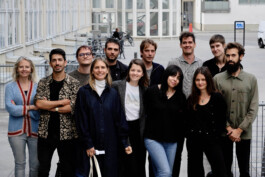
The co-curators of the 4th Autostrada Biennale’s public program. Photo: Bitte Andersson
Biennales of Resistance: a collaboration with the 4th Autostrada Biennale in Kosovo
For the academic year 2022/2023, we invite you to form the team of researchers and assistant curators for the 4th Autostrada Biennale, curated by Övül Ö. Durmusoglu and Joanna Warsza. Autostrada Biennale was established by two artists and a pedagogue in 2014 in Kosovo. As the only contemporary art institution in Prizren, it functions on two speeds: one is a physical exhibition taking place in the public space every two years, the second is a long-term educational center in the former KFOR military camp where the exhibition preparation process is open to the public, making the production of the artworks a form of learning and critical thinking.
Among the three hundred biennials in the world, there are biennales and biennales. Those second ones ‒ such as, in our belief, the Autostrada Biennale ‒ are more valuable to look at and work with from a critical, curatorial perspective. These have been called Biennales of Resistance by the political scientist Oliver Marchart and many have originated in the Global South such as the early Havana Biennial 1978, the Gwangju Biennale after the democratic uprising in South Korea in 1980, the short-lived Johannesburg Biennale after the end of apartheid in 1994, or the Istanbul Biennale after the 1980 military intervention in Turkey. Some of their aims were to de-westernize the art canon, decenter cartographies, shake legitimized institutional art, or create counter-hegemonic models. Autostrada Biennale responds to some of these needs, from the position of the Western Balkans. Kosovo is among the very few countries in Europe where a visa is still needed to travel in the EU, it is a post-war political entity only partially recognized, a corner where different ethnicities and religions breathe side-by-side, and finally, it is a place where the language of contemporary art is needed as a form of resilience and recovery.
The participants are invited to join, shape and reflect on the process of biennale-making in Prizren, working on the conceptualization, contextualisation and production of the context-responsive works and the public program in close collaboration with the curators, artists, directors, education and production teams. The participants are also encouraged to propose their own public and/or education program around the opening of the biennale in June 2023, as well as share educational tools in collaboration with young curators working in Kosovo and the Western Balkan region and with the University of Prishtina and Academy of Fine Art.
2021–2020








Master’s and Teachers Education Degree Exhibition May 2022, curated by CuratorLab.
Photo: Gustav Karlsson Frost (1, 2, 4); Res (3, 5, 6, 7, 8)
Master’s and Teachers Education Degree Exhibition May 2022, curated by CuratorLab.
Photo: Gustav Karlsson Frost (1, 2, 4); Res (3, 5, 6, 7, 8)
Master’s and Teachers Education Degree Exhibition May 2022, curated by CuratorLab.
Photo: Gustav Karlsson Frost (1, 2, 4); Res (3, 5, 6, 7, 8)
Master’s and Teachers Education Degree Exhibition May 2022, curated by CuratorLab.
Photo: Gustav Karlsson Frost (1, 2, 4); Res (3, 5, 6, 7, 8)
Master’s and Teachers Education Degree Exhibition May 2022, curated by CuratorLab.
Photo: Gustav Karlsson Frost (1, 2, 4); Res (3, 5, 6, 7, 8)
Master’s and Teachers Education Degree Exhibition May 2022, curated by CuratorLab.
Photo: Gustav Karlsson Frost (1, 2, 4); Res (3, 5, 6, 7, 8)
Master’s and Teachers Education Degree Exhibition May 2022, curated by CuratorLab.
Photo: Gustav Karlsson Frost (1, 2, 4); Res (3, 5, 6, 7, 8)
Master’s and Teachers Education Degree Exhibition May 2022, curated by CuratorLab.
Photo: Gustav Karlsson Frost (1, 2, 4); Res (3, 5, 6, 7, 8)
Co-curating Konstfack MA Spring Exhibition 2022
For the academic year 2021/2022, CuratorLab joins the team of curators for one of the most anticipated art events in Stockholm: Konstfack's Spring Exhibition 2022, which includes Master's degree programs from the following departments: Fine Art; Craft! (Textile, Glass and Ceramics, Jewellery and Corpus); Spatial Design; Individual Study Plan in Design, Teacher Education in Visual Art and Sloyd, and Visual Communication. Through a mix of dialogues, studio visits, feedback, crit sessions, group work, field trips and seminars, we delve into the ideas and visions of over 85 graduates across these fields.
Konstfack's Degree Exhibition is one of the most important and widely attended art events of the Stockholm art community. It also produces a lot of hopes, aspirations and expectations — some of them impossible to fulfill. We intend to explore questions around the possible ways of presenting this diverse educational setting and opening up the process rather than only celebrating its final results. How can we combine the intimacy of learning and failing and the array of materials and techniques within a situated context of a given space-time? How to understand — paraphrasing Audre Lorde — our interdependence in relation to our own individual power and creativity? How to negotiate between students' desires for self-expression and the curatorial impulse to identify narratives? How to refrain from the reenactment of old hierarchies and think of a unique place of art schools in the ecosystem of art and beyond it? How to combine large-scale production with a setting that benefits all graduates? How to work professionally, efficiently but critically within the frameworks of an established institution?
2021–2020

Archeology of a Profession. The legacy of some less known ground-breaking curators.
CuratorLab embarks on a year-long project tracing the professional archaeology of some of the senior ground-breaking curators. We will dig into a number of instrumental exhibitions and other projects, which on the one hand introduced decolonial and other non-hegemonic approaches in Sweden, and on the other hand anti-monumental curating in the public realm in Europe and the US. The projects will lead us to practitioners who have made a mark on both art and curating of their time, and still remain less known. It will culminate with a book and an exhibition honoring their legacy in May 2021 in Stockholm.
Book led by Maria Lind. Some case studies in Sweden.
We will meet and interview curators and institutional directors such as Elisabet Haglund (Kulturhuset in Stockholm and Borås Konstmuseum) Gunilla Lundahl (the magazine Form and independent projects), Jan-Erik Lundström (Fotografiska museet and Bildmuseet in Umeå) and Carlos Capelán (independent projects). We will conduct archival research connected to their work.
Book led by Joanna Warsza. Working title: Early days of Public Art.
What is public and counter-public in public art? How have the notions of situated or embedded knowledge changed over the years? How does extractivist mind-set penetrate some of so-called participatory projects and how to dehegemonise art outside of the museum walls? We will study some worldwide examples of pioneer exhibitions of public art, interview the curators and artists, digitalize and problematize their legacies. We will work on legendary exhibitions and curatorial projects like Culture in Action curated by Mary Jane Jacob in 1993 in Chicago; Sonsbeek 93 curated by Valerie Smith; Endlichkeit der Freiheit, an exhibition started by Heiner Müller and Rebecca Horn on both sides of Berlin wall and realized after it felt down; Construction in Process, an artist-initiated site-specific exhibition in Łódz in the early 80s, and the Skulptur Projekte Münster, among others.
The research includes live presentations/interviews with forerunning curators, research trips, meetings, creative writing workshops, archival work and the final presentation in May.
Anna Mikaela Ekstrand
Edy Fung
Erik Sandberg
Giulia Floris
Hanna Nordell
Julius Lehmann
Marc Navarro Fornos
Marja Rautaharju
Raluca-Simina Neagu
In collaboration with:
On Swedish case studies: Paulina Sokolow
On Construction in process: Tomek Pawłowski Jarmołajew
2020–2019

















2019 Visible Temporary Parliament, Hôtel de Ville, Paris, photo by Benoit Laurent
2019 Visible Temporary Parliament, Hôtel de Ville, Paris, photo by Benoit Laurent
2019 Visible Temporary Parliament, Hôtel de Ville, Paris, photo by Benoit Laurent
2019 Visible Temporary Parliament, Hôtel de Ville, Paris, photo by Benoit Laurent
2019 Visible Temporary Parliament, Hôtel de Ville, Paris, photo by Benoit Laurent
2019 Visible Temporary Parliament, Hôtel de Ville, Paris, photo by Benoit Laurent
2019 Visible Temporary Parliament, Hôtel de Ville, Paris, photo by Benoit Laurent
2019 Visible Temporary Parliament, Hôtel de Ville, Paris, photo by Benoit Laurent
2019 Visible Temporary Parliament, Hôtel de Ville, Paris, photo by Benoit Laurent
2019 Visible Temporary Parliament, Hôtel de Ville, Paris, photo by Benoit Laurent
2019 Visible Temporary Parliament, Hôtel de Ville, Paris, photo by Benoit Laurent
2019 Visible Temporary Parliament, Hôtel de Ville, Paris, photo by Benoit Laurent
2019 Visible Temporary Parliament, Hôtel de Ville, Paris, photo by Benoit Laurent
2019 Visible Temporary Parliament, Hôtel de Ville, Paris, photo by Benoit Laurent
2019 Visible Temporary Parliament, Hôtel de Ville, Paris, photo by Benoit Laurent
2019 Visible Temporary Parliament, Hôtel de Ville, Paris, photo by Benoit Laurent
2019 Visible Temporary Parliament, Hôtel de Ville, Paris, photo by Benoit Laurent
Socially Engaged Curating in Post-Democratic Times.
In Fall 2019 CuratorLab participants acted as advocates for socially engaged practices shortlisted for the 2019 Visible Award. We tested advocacy as a form of care and responsibility defending artistic projects of Richard Bell, Cooking Sections, Luke Ching, Forensic Architecture, Daniel Godínez-Nivón, Trampoline House, Emily Jacir, Marisa Morán Jahn, Otobong Nkanga, Jasmeen Patheja. This experience made us raise the question of how can art institutions and practices be reformatted beyond display towards agency and engagement?
Over the course of the Covid-19 crisis, our frenzied world has morphed into a global stagnation. The sweet fruits of connectivity, cheap travel, and breakneck production and consumption have been put on hold overnight. In this turbulent time, we ask ourselves: what is indispensable for Translocal solidarity and collective action? Which materials, ways of doing, and values can be prioritized over national or supranational apparatuses, and which strategies of curation, activation, and conservation can we craft as artists and curators?
CuratorLab final on-line public programme: Notes on Curating Socially Engaged Art
Together with the curators of the Visible Project (Matteo Lucchetti and Judith Wielander) and the scholar Andrea Phillips, we look back and from there forwards at the advocacy as curatorial practice and at ways of advancing the discourse around curating socially engaged art.
Schedule:
From an Award to a Long-Term Support Structure?
Live conversation Matteo Lucchetti and Judith Wielander (Visible Project) with CuratorLab, Wednesday, 03 June - watch it online
Democracy and Dramaturgy: Modern Justice and Socially Engaged Artistic Practices
Andrea Phillips, part of Konstfack common seminar in rethinking research practices in Art, Technology and Design, Thursday, 04 June - watch it online
In collaboration with Visible Project (Cittadellarte-Fondazione Pistoletto/Fondazione Zegna), Public Art Agency Sweden, and Italian Cultural Institute in Stockholm.
Read more about the online program and the contents of the two conversations here
2019–2018




Sonia Delaunay, Rythme couleur, Migration: Traces in an Art Collection, Tensta konsthall
Malmö Konstmuseum storage
Group picture with Joanna Warsza, Maria Lind and Jonatan Habib Engqvist, Tensta konsthall, photo by Jean-Baptiste Béranger
How to Build a Public Sculpture, project presentation by John Heffernan, Tensta konsthall
Throughout the academic year, 2018-2019, CuratorLab participants worked alongside the curators Maria Lind and Cecilia Widenheim developing the mediation and public programme for the exhibition, Migration: Traces in an Art Collection, shown at Tensta konsthall and Malmö Konstmuseum in spring and autumn 2019. The starting point of the research was a question of how to work curatorially with public art collections by responding to notions of the public, publicness, the commons, the counter-public, the private, the shared, and the owned. Every participant was engaged in conceptual and hands-on research on the third biggest collection of ‘Nordic’ art in Sweden, from visiting its storage, having a conversation with the conservators and technicians, to develop their own projects. The research began by considering an event in 1945, when the staff of Southern Sweden’s largest museum, Malmö Museer, transformed the institution into a refugee center for those who had survived concentration camps in Germany and had come to Sweden on so-called ‘white buses’. From there, the participants outlined research topics and readings, asking what the role of the curator is in actualising and problematising collections, while also developing the exhibition’s programme, which considered exile, migration, displacement, and art travels in the globalised world.
2018–2017





Aleksandra Kollontai
Research trip, photo by Joanna Warsza
Red Love Reader
Dora Garcia, Red Love, exhibition view, Tensta konsthall
Research trip, photo by Joanna Warsza
CuratorLab 2018-2017 participants together with writer Michele Masucci, collectively revisited the ideas of a Russian revolutionary and feminist, Aleksandra Kollontai, exploring topics such as sexual politics, free love, and motherhood. Kollantai was a prominent Russian revolutionary, a commissar of Social Welfare after the October revolution in 1917, and a long-term Soviet ambassador to Sweden. As a cofounder of the Zhenotdel, the ‘Women's Department’ in the communist party, she introduced abortion rights, secularized marriage, and provided paid maternity leave. Kollontai considered ‘comradely love’ to be an important political force and foundational to shaping social bonds beyond the limitations of property relations.
As a result our research we published a reader on the subject, titled Red Love, stemming from their year-long collaboration with Tensta konsthall, leading to Dora García's exhibition, Red Love. We also developed a related public programme to the show. A number of artists and thinkers revisited Kollontai's ideas throughout the book, on the politics of love and their relation to current political, social, and feminist struggles. The publication also includes the biographical play, Kollontai, written in 1977 by distinguished Swedish writer, Agneta Pleijel.
Red Love: A Reader on Alexandra Kollontai Kollontai. A Play by Agneta Pleijel
2017–2016




CuratorLab presents The Trial - II Processo, 2010-2017, Rossella Biscotti at Hamburger Bahnhof, Berlin, Germany 15&16 Sept 2017, photo by Maeshelle West Davies
CuratorLab presents The Trial - II Processo, 2010-2017, Rossella Biscotti at Hamburger Bahnhof, Berlin, Germany 15&16 Sept 2017, photo by Maeshelle West Davies
Curatorlab with the president of Gwangju Biennale Founadation, photo by Saima Usman
Group session, Tensta konsthall
Throughout the academic year 2016/2017 we have been working together with curator Maria Lind and writer Michele Mascucci on re-staging The Trial / Il Processo (2010/2017), a performative piece by Italian artist Rossella Biscotti, based on the original courtroom recordings from the 1982–84 trial of members of Autonomia Operaia in Rome. CuratorLab organised related research, reading groups, and meetings, prepared the transcripts and finally enacted The Trial at Tensta konsthall in Stockholm first as an open rehearsal, and then as a performance at the Hamburger Banhof in Berlin.
2016–2015




Iaspis Open House Spring 2016
Group at Tensta konsthall
Visiting Tensta neighbourhood
Research trip
Iaspis Open House Spring 2016 curated by CuratorLab
This edition of the Open House took on the concept of openness, hospitality, transparency and vulnerability, making access not only to the artists’ studios, but the institution as such and bringing the new public in-house. In a series of day and night events Open House presented the work in progress of Iaspis artists in residence program, as well as hosted the performative interventions of the Stockholm emerging scene, with its collectives contributing with food, self-made publication on demand, and a music repertoire. The main idea was to refer to the Swedish tradition of so-called Open House, when people organize a party open to everybody, an exhibition of their domicile, bringing the world into their life, and their life to the world.
When the Iaspis programme opens the doors of its studio residencies for a day, it is an invitation to take part in the on-going artistic processes. The Iaspis studio programmme’s focus is ‘research based’; a place of investigative activity that offers time off from the production line of making. The grant holders can spend their time at the residency to reflect, explore and enter into unconditional processes without the need for results. They initiate new projects in local partnerships or work on on-going projects.
The studio and the context created by the Iaspis programmme is in itself a platform for informal and formal meetings with Swedish and international artists, curators, writers and with professional audiences. The programme’s residence activities are therefore about process itself, with the aim to add to a greater internationalization of the applied and visual art scene in Sweden.
Iaspis grant holders March 2016
Azadeh Fatehrad, Tehran/London; Ayesha Sultana, Dhaka; Benny Nemerofsky Ramsay, Berlin/Montreal; Cecilia Hultman Sundsvall/Stockholm; Isak Sundström, Stockholm; Jenny Lindblom, Eskilstuna/Amsterdam; Mafune Gonjo, Strängnäs; Ruangrupa Arts Laboratory division (ArtLab), Jakarta; Vladimir Nikolić, Belgrade; Maria Nilsson Waller, Göteborg
The International Dance Programme, KID
Maria Nilsson Waller, Göteborg
Carin Kallenberg
Maryam Omrani
Sookyoung Huh
2015–2014



Frederick Kiesler: Visions at Work at Tensta konsthall, photo by Jean-Baptiste Béranger
Frederick Kiesler: Visions at Work Annotated by Céline Condorelli at Tensta konsthall
Research trip, Winter Palace, Sankt Petersburg
Frederick Kiesler: Visions at Work Annotated by Céline Condorelli and Six Student Groups including CuratorLab at Tensta konsthall
In winter 2015 Tensta konsthall showed the first exhibition in Sweden of Frederick Kiesler’s genuinely transdisciplinary work. Kiesler (1890–1965) was an architect, artist, scenographer, pedagogue, theorist and - not least - a groundbreaking exhibition designer. CuratorLab participants developed own public program of the show spanning from an exhibition in the shop windows in the shopping mall nearby, via reading groups on friednship to the selection of the reading material at the library.
The exhibition featured models and documentations of Kiesler’s designs for exhibitions, buildings, interiors, shop-windows, etc. from various periods. The exhibition also included prototypes, including those of his Mobile Home Library and the mass-produced so-called correalist furniture, among others. The focus was on Kiesler’s interest in the intersection between art and life and how this manifests in his works. The artist Céline Condorelli, who has a long-time interest in exhibition design and modes of presentation, contributed to the spatial design of the project.
Student groups from KTH Tensta, KTH School of Architecture, Mejan Arc at the Royal Institute of Art, Interior Architecture & Furniture Design and CuratorLab at Konstfack, and a fifth grade at Askebyskolan in Rinkeby were all involved with the exhibition.
Kim Mcaleese
Patrik Haggren
Samuel Perry
2014–2013

Grand Domestic Revolution, common project, Tensta konsthall
Alba Colomo
Lisanne Fransen
Michele Elefante Salvatore
Valentina Carollo
2013–2012

Benjamin Fallon
Goran Hassanpour
Haizea Barcenilla Garcia
João Laia
Maria Andueza Olmedo
Rosa Lleo Ortin
Ziga Testen
2012–2011

VIP Opening, June Zimmerfrei Cinema, courtesy of Michela Sacchetto
Cinthya Oliveira Cardosa Lana
Jessica Carden
Tiffany Boyle
Vera Mlechevska
2011–2010

Laercio Redondo, Time Changes Everything Around, common project - apexart show Washed Out, Konsthall C
Carolina Rito
Milena Placentile
Misbah Deeb
Valerio Del Baglivo
2010–2009

Padraic Moore, Nevertheless
Alexa Griffith Winton
Diana Kaur
Marina Noronha
Michael Dominic Capio
Tina Hansson
2009–2008

2008–2007

Maia Niki Gianakos
2007–2006

Adina Popescu
Agnieszka Kurant
Caroline Elgh
Michelle Cotton
Sarah Belden
2006–2005

Anna Johansson
Anna Lundström
Caroline Elgh
Ellen von Zweigbergk
Giovanni Naves
Hitomi Hasegawa
Johan Lundh
Krist Gruijthuijsen
Mia Zeeck
Maria Andersson
2005–2004

Ane Mette Hol
Cecilia Germain
Hanne Mugaas Joakimsen
Magnus Carlsson
Maria Lagergren
Rebecka Wigh
Thomas Watkiss
Yuvinka Medina
2004–2002

Balancing act, artists and curators
2002–2000

2000–1999

The first ever class to graduate from CuratorLab at Konstfack showed their exhibition-projects under one and the same roof at Färgfabriken. The exhibition was called, Lost in Space and displayed the works of seventeen artists from different parts of Sweden and from Norway. The title, Lost in Space, does not refer to outer space as much as to the question of accessibility of space here on Earth.
The title also alluded to the current situation for young contemporary arts practitioners, namely, the lack of spaces to exhibit and to reside in. While Lost in Spacewas one exhibition, it had five different components, since five curators made selections of artworks and artists with regard to their own ideas and projects. A catalogue produced for the show presented the works and curatorial ideas behind the exhibition.
Publications
God's Mirrorball
Written by Viktor Iraklis. 2025
(From the series Curatorial texts on curatorial practices)
A reflection on humans, machines, and textiles
— and on the exhibition as a space for inquiry
Written by Evelina Hedin. 2025
(From the series Curatorial texts on curatorial practices)
SCREEN ∿ SOUND ∿ STONE
Written by Lucie Gottlieb. 2025
(From the series Curatorial texts on curatorial practices)
I Cast “Fireball” at the Gallery Wall: Gaming Through the Archives
Written by Sara Szostak. 2025
(From the series Curatorial texts on curatorial practices)
Red Love: A Reader on Alexandra Kollontai
Kollontai. A Play by Agneta Pleijel
If I had - Om jag hade - Si yo tuviera by Jari Malta
Vår Tid (our time) by Jeongwon Chae
Handout: souvenir from Tea Party with Maja Berezowska by Kasia Sobczak
Museum of Care by Lotte Løvholm
Russian revolution Revisited, A project on archive material and contemporary practices by Domna Gounari
Everything is fine,or the continuous search for a utopia by Sofia Mavroudis
Ner/slag – Upp/brott – Sönder/fall by Jacob Hurting
Washed Out curated by Corina Oprea, Isabel Löfgren, Judith Souriau, Milena Placentile, and Valerio Del Baglivo
Apply

CuratorLab call for applications 2026/27
CuratorLab 2026/27 proposes an exploration of curatorial, institutional, and para-institutional practices through a series of gatherings, meetings, workshops, project development, historical research, and experimentation. Participants will develop their own curatorial projects in close dialogue with each other, engage with professionals, and study key examples of curatorial thinking.
CuratorLab 2026/27 situates curatorial work within the broader framework of institutional thinking—understood here as a way to interpret and engage with reality, rooted in criticality and a desire to propose new approaches for reshaping our contexts. Whether working inside or outside of formal institutions, curators must consider the structural conditions that influence exhibition-making and other modes of producing and presenting art.
This year’s edition will serve as a platform for creatively reimagining institutions, proposing new ways of working from a curatorial perspective in close collaboration with artistic practices and their modes of distribution.
The thematic focus on “expanding the institutional” will be accompanied by engagements with professionals, institutional partners, and historical case studies of curatorial practice.
The course will be led by Marti Manen, with guest lecturer Anna Manubens.
CuratorLab is a one-year international advanced curatorial course at Konstfack University of Arts, Crafts and Design in Stockholm. We explore experimental approaches to curating, contribute to pressing contemporary conversations, practice curating beyond exhibition-making, and emphasize horizontal learning.
For over 25 years, CuratorLab has served as a platform for rethinking curatorial practice—testing models and methods through experimental exhibitions, publications, seminars, advocacy, and project development. The course embraces flexibility and porosity as learning methodologies, fostering dialogical situations that enable deep discussions on critical thinking, the societal dimensions of artistic practice, and the role of contemporary art today.
How to apply
More information soon
Contact
Konstfack
LM Ericssons väg 14
126 26 Stockholm
Sweden

designed by Studio Pyda
Scroll to top